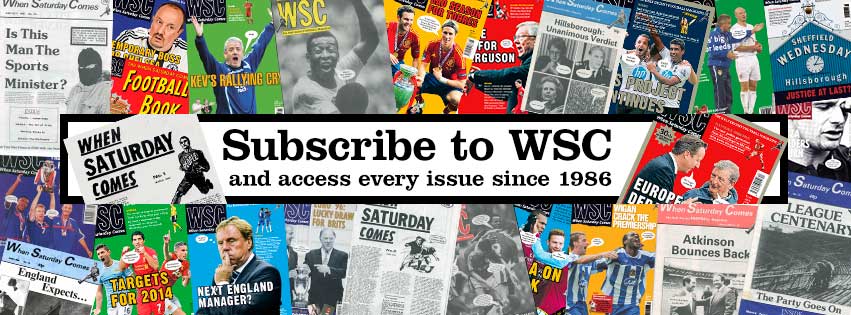Be it an accent, umlaut or favoured nickname, many footballers have special requests as to how their name is printed
15 May ~ When Kelechi Iheanacho first wore a Leicester City shirt after his move from Manchester City, some noticed the punctuation under the first and last letters of his surname. The “dots” were sending a message, to millions in his native Nigeria. They tell Igbo speakers – more than 20 million globally – to pronounce the vowels in a specific way, holding their tongue lower in the mouth.
“In our tradition, the exclamation under the names is very, very important,” Iheanacho says. “For me it is a way to express where I come from and for people to know I have this tradition and tribe back home. In the village if they are able to watch the game and see it, they will be proud.”
He is not the only Premier League player to accent their name for accuracy. Manchester City’s Sergio Agüero has a diaeresis – two “dots” – over the U in the surname on his shirt. When Mesut Özil signed for Arsenal in 2013, the club shop had to swiftly stockpile suitable punctuation such was the unexpected demand for his trademark umlaut.
“I saw some other players have their names with accents so I thought maybe it was a possibility,” Iheanacho says. “When I was at Manchester City I didn’t have the opportunity. I was a little bit nervous about it coming up from the academy, but coming here I felt I could talk to people about it and see if they could do it.”
Names and squad numbers were introduced to top-flight shirts in 1993, in time for the second Premier League season. This was a conscious copy from the NFL, with Arsenal chief executive David Dein and his Manchester United counterpart Martin Edwards among those looking to take ideas from the high-gloss world of US sports. Now, once again, the Premier League is chasing a stateside trend. In Major League Baseball, around 25 per cent of the players have Hispanic roots. But it was only after a 2016 campaign, originating in the locker room, backed by MLB itself and called Ponle Acento – “put an accent on it” – that the kit started to catch up.
Players who had previously fashioned makeshift marks out of athletic tape now saw their names officially altered. Tildes topped Ns and acute accents sprouted over vowels as the MLB reached out to a Hispanic audience being increasingly wooed by MLS.
The Premier League is not as proactive. For Iheanacho and Leicester it was not as simple as asking the King Power kitman to get snipping. For a player to change the way their name appears on the back of their shirt requires a written application and the Premier League’s approval.
When he first arrived in 1996, Jordi Cruyff laboured under his weighty surname in a Manchester United shirt, where he had gone by his first name with Holland. By the time he left, though, the Premier League had softened their stance and the trend continues.
Players have been allowed to adopt first names because of family issues – as in the case of Virgil van Dijk or Memphis Depay – or transfer a nickname that they had at a foreign club – for instance Javier “Chicharito” Hernández or Christian “Chucho” Benítez.
Ravel Morrison’s switch from surname to first name on his arrival at West Ham from Manchester United was approved reportedly to “signal a fresh start in his career”. Probably to the irritation of Cesc Fàbregas, who apparently had his attempt to play for Arsenal under his first name, as he had at international level, knocked back.
The approved range of letters and numbers that can appear on the back of a Premier League shirt don’t stretch beyond the Roman alphabet. Son Heung-min is limited to an anglicised version of his South Korean name, just as Tottenham predecessor Roman Pavlyuchenko couldn’t delve into the Russian alphabet. But there are a range of diacritical marks – accents from around the world – that are part of the official alphabet and ready to be used. They are the smallest of changes, but they carry considerable weight.
The Igbo were the predominant ethnic group in the breakaway state of Biafra, which existed for two and a half years at the end of the 1960s. Its brief existence ended, via a blockade, civil war and the deaths of hundreds of thousands, with reabsorption into Nigeria. Fifty years on the Biafra flag – a rising sun at the centre on a red, black and green tricolour – appears on everything from roadside posters to beer bottles in south-eastern Nigeria.
“It means so much to me,” Iheanacho says of the dots on his shirt. “It has been in my mind for a long time; it is my family’s name and for me to carry it on. But also I would like to share my culture with the people in this country. I would like everyone to know we have a culture, a way to write, a way to speak and everything. That is the excitement for me.” Mike Henson
This article first appeared in WSC 387, June 2019. Subscribers get free access to the complete WSC digital archive – you can find out more here
